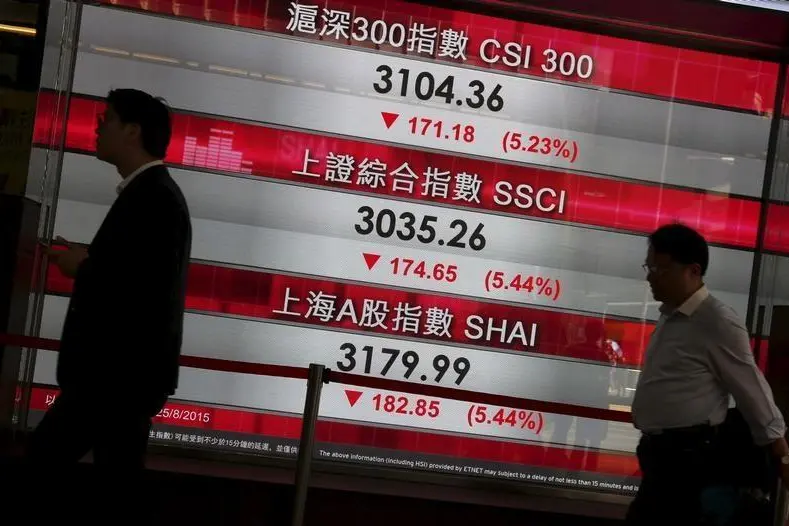PHOTO
SINGAPORE - Oil and stock markets were under pressure on Wednesday on worries about the fallout from China's pandemic lockdowns, while the yen slightly extended its record losing streak as traders put Japan's ultra-easy monetary policy settings to the test.
The Chinese yuan hit its lowest since October after the central bank promised support for the services sector, but was volatile as China also surprised and disappointed equities investors by not cutting lending rates.
MSCI's broadest index of Asia-Pacific shares outside Japan was steady as modest losses in Hong Kong and Shanghai offset gains in Sydney. Japan's Nikkei trimmed early gains to stand 0.5% higher by mid morning.
S&P 500 futures fell 0.4% and Nasdaq futures dropped 0.9%.
"COVID lockdowns and shipping delays and backlogs may have heightened worries (about China's trade surplus)," said Moh Siong Sim, a strategist at the Bank of Singapore.
At the same time inflationary pressure from the disruption and from war in Ukraine is adding to markets' expectation of an aggressive response from U.S. monetary policymakers which is driving U.S. Treasury yields higher and the yen lower.
Benchmark 10-year Treasury yields were within a whisker of 3% on Wednesday and inflation-protected yields were in positive territory for the first time since 2020.
Minneapolis Fed President Neel Kashkari said overnight that the Federal Reserve will "have to do more" to bring inflation down if China's lockdowns flow across supply chains.
The yen, which has tumbled at the same time as Japan - by contrast - vows to stick with ultra loose monetary policy and keep its government bond yields anchored near zero, wallowed at a two-decade low on Wednesday and fell on crosses.
At 129.43 per dollar, there were some nerves that intervention - verbal or otherwise - from Japanese authorities could drive a bounce, but most traders still seem to think that the path of least resistance is lower.
Better-than-expected U.S. housing data also seemed to add to investors expectation of U.S rate rises.
Elsewhere in currency markets, war in Ukraine has kept the euro pinned and it last bought $1.3025.
Brent crude futures were steady at $107.35 a barrel after dropping 5% on Tuesday.
(Reporting by Tom Westbrook; Editing by Himani Sarkar)




















